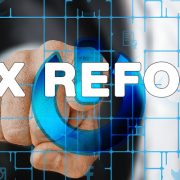7 Moves To Make Before Year End That Can Save You A Lot of Money on Your 2017 Taxes
/0 Comments/in Year-end tax planning/by Tax AttorneyOn December 22, 2017, President Trump signed into law the 2017 Tax Cuts And Jobs Act. It’s been a good 30 years since the last time the Internal Revenue Code received such a major update.
Major Changes From The New Law Include:
Compressed And Lower Income Tax Rates For Individuals.
Increased Standard Deduction For Individuals
Elimination Of Personal Exemptions
Limitations of Deductibility Of Itemized Deductions including Mortgage Interest and State & Local Taxes.
Lower Corporation Tax Rates.
The Big Picture:
The tax rates are going down next year, so a deduction now is worth a lot more than it will be in 2018. On top of that, several popular deductions are disappearing next year or getting substantially limited and in combination with a nearly doubled standard deduction, less taxpayers will be itemizing deductions in 2018. The key here is to accelerate deductions into 2017 and defer income into 2018.
Following are seven year-end tax moves to make before this New Year’s Day:
1.Give more to charity in 2017.
In addition to the usual dollar donations to charities, religious institutions and educational institutions, consider clearing your home of those unwanted household goods and clothing to give to charities. Many groups will accept these items even vehicles, with some even making arrangements to pick up them up from your home. You may also consider to donate stock or mutual funds that you’ve held for more than a year but that no longer fit your investment goals. The charity gets the asset to hold or sell, and your portfolio re-balancing nets you a deduction for the asset’s value at the time of gifting. Even better, you do not have to worry about capital gains taxes on the appreciation of your gift. Remember that if you take the standard deduction in 2018, you won’t get any tax savings from your charitable contributions made in 2018.
2. Make the most of your home – mortgage interest.
Home-ownership provides a variety of tax breaks, some of which you can use by year-end to reduce your current year’s tax bill. Make your January mortgage payment by December 31st and deduct the mortgage interest on your coming tax return. In 2018, the amount of mortgage interest you can deduct will be reduced (from $1,000,000 of principal indebtedness to $750,000 of principal indebtedness) so you will want to maximize the amount of mortgage interest paid in 2017. Another tactic is to try to prepay your home-equity loan interest. That deduction goes away next year, so it’s worth calling your bank and seeing if you can prepay at least some of the interest so you can get the tax savings in 2017.
3.Make the most of your home – property taxes.
Like prepaying mortgage interest, the same tactic will apply for property taxes which along with other state and local taxes will be deductible only up to $10,000 starting in 2018.
4.Pay State And Local Income Taxes in 2017.
Starting in 2018 property taxes and other state and local taxes will be deductible only up to $10,000. People who typically pay their state income taxes quarterly can easily pay the January installment before the end of 2017. Likewise if you have an outstanding income tax bill with your state or local tax agency or expect to amend a prior year’s state income tax return that will result in you owing money, consider paying or prepaying these liabilities in 2017.
5.Pay your self-employed business expenses now.
If you are self-employed, you should accelerate payment of your business expenses in 2017. Recognizing these expenses in 2017 when tax rates are higher will provide you with a greater tax savings.
6.Catch up and prepay your “miscellaneous itemized deductions”.
If you pay union dues or a professional society membership fee (e.g. a chamber of commerce or bar association) or buy a lot of supplies for your job (e.g., professional musicians buying new instruments) that you normally deduct as miscellaneous itemized deductions on your taxes, you’ll want to buy everything you can by January 1st. All of these expenses constitute Miscellaneous Itemized Deductions which are deductible to the extent the total is more than 2% of your adjusted income. But that deduction is going away entirely in 2018. Another deduction that’s going away in 2018 is for tax preparation services. Ask your accountant now for the invoice they would normally give you in April after they file your tax return. If you can pay it now, you can still deduct it.
7.Defer your income into 2018.
Consider delaying income until January 2018 when the tax rates are lower, especially if you are a small-business owner. So if you are chasing up some customers or clients to pay the bill you sent them a while ago, you might want to wait until January to get aggressive on collecting. Consider delaying the delivery of invoices for year-end jobs until January 2018. In addition to lower tax rates, small business owners get a generous benefit starting next year of being able to deduct 20% of their business income tax-free. If you are an employee, ask your boss to hold your bonus until January. Individuals should also consider putting more money into a tax-deferred workplace retirement plan in 2017 and hold off on selling assets that will produce a capital gain until 2018.
But Beware Of The Bite Of The Alternative Minimum Tax!
If you will be subject to the Alternative Minimum Tax (“AMT”) in 2017, paying those state and local taxes, your property taxes, and your miscellaneous itemized deductions before this January 1st probably won’t help you because the AMT requires you to add back all of these payments and recalculate your tax bill, so the benefit of paying them in 2017 goes away.
What Should You Do?
With not much time left in 2017 you will need to act quickly on those tax moves that are easy to accomplish to reduce your tax bill.
You know that at the Law Offices Of Jeffrey B. Kahn, P.C. we are always thinking of ways that our clients can save on taxes. If you are selected for an audit, stand up to the IRS by getting representation. Tax problems are usually a serious matter and must be handled appropriately so it’s important to that you’ve hired the best lawyer for your particular situation. The tax attorneys at the Law Offices Of Jeffrey B. Kahn, P.C. located in Orange County, San Francisco and elsewhere in California are highly skilled in handling tax matters and can effectively represent at all levels with the IRS and State Tax Agencies including criminal tax investigations and attempted prosecutions, undisclosed foreign bank accounts and other foreign assets, and unreported foreign income.
How Do Marijuana Businesses Substantiate To IRS Expenses Paid In Cash?
/0 Comments/in Cannabis Banking, Cannabis Business, Marijuana Tax Planning & Marijuana Tax Defense/by Tax AttorneyIt is outrageous that the $6.7 billion U.S. cannabis industry is forced by disparities in state and federal law to conduct nearly all transactions in cash. Experts believe that by 2021 the cannabis industry is expected to balloon to $21 billion. The lack of banking opportunities for marijuana business and being forced to deal in cash creates challenges for these business to not only manage the cash but how to substantiate expenses paid in the event the business is select for audit by the IRS.
Yes – Marijuana Businesses Have to Report Income To IRS And Pay Taxes!
Legal marijuana businesses have to pay taxes under I.R.C. §280E, the same category reserved for illegal drug traffickers. Cannabis is categorized as a Schedule I substance under the Controlled Substances Act. While more than half of the states in the U.S. have legalized some form of medicinal marijuana, and several others have passed laws permitting recreational cannabis use, under federal drug laws the sale of cannabis remains illegal.
Supporting Business Documents
In any typical business, purchases, sales, payroll, and other transactions will generate supporting documents. Supporting documents include sales slips, paid bills, invoices, receipts, deposit slips, and canceled checks. These documents contain the information you need to record in your books. It is important to keep these documents because they support the entries in your books and on your tax return. Keeping them in an orderly fashion and in a safe place will assure that if the time should come that you are selected for an IRS audit, you will be able to produce them and preserve the deductions claims.
Proof of Payments
Proving deductions to the IRS is a two-step process:
First, you must substantiate that you actually paid the expense you are claiming.
Second, you must prove that an expense is actually tax deductible.
So what do you do when your marijuana business operates in a cash environment without using any bank accounts?
Step One: Incurred And Paid The Expense
For example, if you claim a $5,000.00purchase expense from a marijuana distributor, offering a copy of a bill or an invoice from the distributor (if one is even provided) is not enough. It only proves that you owe the money, not that you actually made good on paying the bill. The IRS accepts canceled checks, bank statements and credit card statements as proof of payment. But when such bills are paid in cash as it typical in a marijuana business, you would not have any of these supporting documents but the IRS may accept the equivalent in electronic form.
That is where it becomes essential that an accounting system be developedearly on to track these transactions.
Step Two: Deductibility Of The Expense
Next you must prove that an expense is actually tax deductible. For marijuana businesses this is challenging because I.R.C. §280E states: “No deduction or credit shall be allowed for any amount paid or incurred during the taxable year in carrying on any trade or business if such trade or business (or the activities which comprise such trade or business) consists of trafficking in controlled substances (within the meaning of Schedules I and II of the Controlled Substances Act, 21 U.S.C §812) which is prohibited by federal law or the law of any state in which such trade or business is conducted.”
In reading I.R.C. §280E one would think that no deductions are allowed in a marijuana-related business but if that were the case, the U.S. Tax Court has stated that this statute would have been stricken as unconstitutional as the Sixteenth Amendment to the U.S. Constitution prohibits the Federal government from taxing “gross receipts”. Reading vs. Commissioner Of Internal Revenue, 70 T.C. 730 (1978). So the way I.R.C. §280E operates is to allow marijuana-related businesses to deduct Costs Of Good Sold but not “ordinary and necessary” business expenses. This tax treatment prevails regardless that you are conducting a marijuana business that is duly licensed in a State that has legalized marijuana because such business is still illegal under federal law.
It should be apparent that the cost of acquiring the marijuana itself is part of Costs Of Good Sold but what if you produce the marijuana? We advocate that producers can also capitalize the direct material costs (marijuana seeds or plants), direct labor costs (planting, cultivating, harvesting and sorting), and certain indirect costs that include repairs, maintenance, utilities, rent, taxes, depreciation, employee benefits and officer’s salaries). Resellers too should consider a more expansive view of Cost Of Goods Sold that includes capitalizing the costs of transportation and other necessary charges incurred in acquiring possession of the marijuana and maintaining the inventory for resale.
That is why it becomes essential that a proper accounting system be developed to capitalize as much of your expenses into inventory in a manner acceptable by the IRS.
Getting The Money To IRS And State Tax Agencies
This same lack of access to a traditional banking infrastructure making it difficult for cannabis companies to establish exactly the kind of fiscal paper trail that the IRS and state tax agencies could use to help enforce tax compliance also creates a problem as to how to pay the taxes due to IRS and state tax agencies. Keep in mind that this problem is just not a once a year event, it goes on all year – you have to remit your payroll taxes quarterly, your excise taxes are collected monthly. With all the cash to keep track of, the record keeping involved and the security of string and transporting funds, it is crucial that a proper cash management and accounting system be established and maintained.
What Should You Do?
Don’t wait to be selected for an IRS audit. Be proactive and implement the proper cash management and accounting systems now. Marijuana businesses who hire an experienced attorney-CPA should benefit in paying the least amount of tax under the tax code and if audited, the least audit adjustments and avoiding costly litigation. Let the tax attorneys of the Law Offices Of Jeffrey B. Kahn, P.C. located in Orange County, San Jose and other California locations maximize your net profits and get you the best possible result.
City Of Long Beach Rings In 2018 Opening Its Gates To Medical Marijuana Businesses
/0 Comments/in Marijuana Tax Planning & Marijuana Tax Defense/by Tax AttorneyLong Beach Municipal Code Chapter 5.90 – On November 8, 2016, the citizens of Long Beach voted to approve the regulatory portion of Measure MM, making it legal to own and operate a medical marijuana business in the City of Long Beach. The ordinance allows for medical marijuana dispensaries, delivery, manufacturing, cultivation, distribution, and laboratory testing. The newly added Long Beach Municipal Code (LBMC) Chapter 5.90 requires medical marijuana businesses to be licensed by the State following the State issuing licenses beginning in January 2018.
Marijuana Business Licenses
On November 8, 2016, California voters approved Proposition 64, the Adult Use of Marijuana Act (AUMA). AUMA created a statewide regulatory and licensing system for adult-use marijuana businesses. On June 27, 2017, Governor Jerry Brown signed into law the Medicinal and Adult-Use Cannabis Regulation and Safety Act (MAUCRSA), which merged regulations for medical and adult-use cannabis into a single regulatory framework. MAUCRSA grants local governments the ability to regulate and/or prohibit commercial marijuana activity within their jurisdictions. The State of California will issue temporary marijuana licenses beginning January 1, 2018 pursuant to Business and Professions Code Section 26050.1. In order to apply for a State temporary license, Applicants must provide evidence of a valid license, permit, or other local authorization.
The Business License Division within the Department of Financial Management is the licensing authority for all medical marijuana businesses in the City of Long Beach. Long Beach will accept applications only for medical marijuana businesses. Currently, Long Beach is not issuing licenses for recreational marijuana businesses. Long Beach will shut down and prosecute any marijuana business located in the City of Long Beach that does not have the required licenses.
Available Medical Marijuana Business Licenses in Long Beach
Five types of medical marijuana business licenses will be issued in the City of Long Beach:
Medical Marijuana Dispensary
Medical Marijuana Cultivation Facility
Medical Marijuana Manufacturing Facility
Medical Marijuana Distribution Facility
Medical Marijuana Testing Laboratory
Status Of Businesses Providing Adult-Use (Recreational) Marijuana in Long Beach
On November 14, 2017, the Long Beach City Council voted to request the City Manager to work with affected City Departments to develop recommendations to legalize and regulate commercial adult-use (recreational) marijuana businesses in Long Beach. The City Attorney will report back to City Council with a draft ordinance to allow, license, and regulate the retail sale, cultivation, manufacture, distribution, and laboratory testing of adult-use marijuana in Long Beach by June 2018. In the meantime starting November 14, 2017, a temporary ban is in effect for the next 180 days, prohibiting the operation of any commercial adult-use marijuana activities in Long Beach. This ban does not apply to medical marijuana business licenses.
Procedure For Licensure
The State of California will issue temporary marijuana licenses beginning January 1, 2018. In order to apply for a State temporary license, Applicants must provide evidence of a valid license, permit, or other local authorization. The City of Long Beach will issue a letter of local authorization for an applicant to obtain the temporary State license if the proposed medical marijuana business has completed the following tasks:
- The Applicant has submitted the Medical Marijuana Business License Application, Operating Plan, Supplemental Information, and applicable fees to the City of Long Beach and such application has been determined by the City Manager or his or her designee to be complete;
- The City’s Planning Bureau has conducted a review of the proposed business location and has deemed the application to be in compliance with all applicable buffer distance requirements as set forth in LBMC Section 5.90.030 and Section 5.90.060, as applicable;
- The Applicant has submitted all required plans for plan check approval for review by the Department of Development Services and had such plans approved;
- The Applicant has been issued a valid building permit for the approved marijuana use at the proposed business location by the Department of Development Services; and
- The Applicant has paid all applicable business license taxes and fees.
The letter of local authorization does not grant a business the right to operate in Long Beach. The letter of local authorization is exclusively intended to assist marijuana businesses in initiating an application for a temporary license with the State to obtain the license in a timely manner. Upon receiving the State temporary license, a medical marijuana business can start operating in Long Beach beginning January 1, 2018 provided that the businesshas been issued all necessary and valid local permits for the proposed business location and the City has issued a valid City of Long Beach Medical Marijuana Business License.
Acceptable LocationsIn Long Beach For Medical Marijuana Businesses
Proposed medical marijuana facility locations must comply with the restrictions laid out in LBMC Section 5.90.030:
- No Medical Marijuana Business may be operated in an area zoned exclusively for residential use
- No Medical Marijuana Business may be located within one thousand (1,000) foot radius of a public or private school (as defined in Health and Safety Code 11362.7689(h));
- No Medical Marijuana Business may be located within one thousand (1,000) foot radius of a public beach;
- No Medical Marijuana Business may be located within a six hundred (600) foot radius of a public park or public library;
- No Medical Marijuana Business may be located within a six hundred (600) foot radius of a day care center (applications submitted before January 1, 2018 are exempt from this requirement); and
- No Medical Marijuana Dispensary may be located within one thousand (1,000) foot radius of another Medical Marijuana Dispensary.
What Should You Do?
Whether starting a new marijuana business or acquiring/selling an existing marijuana business, be proactive knowing that you have hired tax counsel to implement the proper cash management and accounting systems now. Marijuana businesses who hire an experienced attorney-CPA should benefit in paying the least amount of tax under the tax code and if audited, the least audit adjustments and avoiding costly litigation. Let the tax attorneys of the Law Offices Of Jeffrey B. Kahn, P.C. located in Orange County, Long Beach and other California locations maximize your net profits and get you the best possible result.
Who’s Been Naughty And Who’s Been Nice? President Trump Signs New Tax Law In Time For Christmas.
/0 Comments/in IRS Operations & Procedures/by Tax AttorneyOn December 22, 2017, President Trump signed into law the 2017 Tax Cuts And Jobs Act. It’s been a good 30 years since the last time the Internal Revenue Code received such a major update. With much discussion on the touted benefits of the plan, there has been very little discussion on what is missing.
Major Changes From The New Law Include:
- Compressed And Lower Income Tax Rates For Individuals.
- Increased Standard Deduction For Individuals
- Elimination Of Personal Exemptions
- Limitations of Deductibility Of Itemized Deductions including Mortgage Interest and State & Local Taxes.
- Lower Corporation Tax Rates.
More details on these changes and others will be forthcoming.
But What Is Missing In The New Law?
U.S. Taxpayers Still Taxed On Worldwide Income. There is no change to citizen based taxation for U.S. taxpayers. That means that U.S. citizens and resident aliens who are subject to U.S. taxation will still have to report their worldwide income, including income from foreign trusts and foreign bank and securities accounts, on their U.S individual income tax returns. In most cases, affected taxpayers need to complete and attach Schedule B to their tax return. Part III of Schedule B asks about the existence of foreign accounts, such as bank and securities accounts, and usually requires U.S. citizens to report the country in which each account is located.
Repeal Of The Foreign Account Tax Compliance Act (“FATCA”). There is no repeal of or for that matter any change in FATCA. FATCA was enacted into law in 2010 to impose a reporting obligation by foreign financial institutions to report information on U.S. account holders so that it is received by the IRS. It also mandates that U.S. citizens, resident aliens and certain non-resident aliens must report specified foreign financial assets on Form 8938 if the aggregate value of those assets exceeds certain thresholds. Reporting thresholds vary based on whether a taxpayer files a joint income tax return or lives abroad. The lowest reporting threshold for Form 8938 is $50,000 but varies by taxpayer.
Other Filing Requirements If You Have Foreign Accounts Remain Unchanged.
By law, many U.S. taxpayers with foreign accounts exceeding certain thresholds must file Form 114, Report of Foreign Bank and Financial Accounts, known as the “FBAR.” It is filed electronically with the Treasury Department’s Financial Crimes Enforcement Network (“FinCEN”).
Taxpayers with an interest in, or signature or other authority over, foreign financial accounts whose aggregate value exceeded $10,000 at any time during a calendar year must file FBARs. It is due by the due date of your Form 1040 and must be filed electronically through the BSA E-Filing System website.
By law, Americans living abroad, as well as many non-U.S. citizens, must file a U.S. income tax return. In addition, key tax benefits, such as the foreign earned income exclusion, are only available to those who file U.S. returns.
Penalties for non-compliance.
Civil Fraud – If your failure to file is due to fraud, the penalty is 15% for each month or part of a month that your return is late, up to a maximum of 75%.
Criminal Fraud – Any person who willfully attempts in any manner to evade or defeat any tax under the Internal Revenue Code or the payment thereof is, in addition to other penalties provided by law, guilty of a felony and, upon conviction thereof, can be fined not more than $100,000 ($500,000 in the case of a corporation), or imprisoned not more than five years, or both, together with the costs of prosecution (Code Sec. 7201).
The term “willfully” has been interpreted to require a specific intent to violate the law (U.S. v. Pomponio, 429 U.S. 10 (1976)). The term “willfulness” is defined as the voluntary, intentional violation of a known legal duty (Cheek v. U.S., 498 U.S. 192 (1991)).
Additionally, the penalties for FBAR noncompliance are stiffer than the civil tax penalties ordinarily imposed for delinquent taxes. For non-willful violations it is $10,000.00 per account per year going back as far as six years. For willful violations the penalties for noncompliance which the government may impose include a fine of not more than $500,000 and imprisonment of not more than five years, for failure to file a report, supply information, and for filing a false or fraudulent report.
Lastly, failing to file Form 8938 when required could result in a $10,000 penalty, with an additional penalty up to $50,000 for continued failure to file after IRS notification. A 40% penalty on any understatement of tax attributable to non-disclosed assets can also be imposed.
The Solution.
The IRS has special programs for taxpayers to come forward to disclose unreported foreign accounts and unreported foreign income. The main program is called the Offshore Voluntary Disclosure Program (OVDP). OVDP offers taxpayers with undisclosed income from offshore accounts an opportunity to get current with their tax returns and information reporting obligations. The program encourages taxpayers to voluntarily disclose foreign accounts now rather than risk detection by the IRS at a later date and face more severe penalties and possible criminal prosecution.
For taxpayers who willfully did not comply with the U.S. tax laws, we recommend going into the 2014 Offshore Voluntary Disclosure Program (OVDP). Under this program, you can get immunity from criminal prosecution and the one-time penalty is 27.5% of the highest aggregate value of your foreign income producing asset holdings.
For taxpayers who were non-willful, we recommend going into the Streamlined Procedures of OVDP. Under these procedures the penalty rate is 5% and if you are a foreign person, that penalty can be waived. This is a very popular program and we have had much success qualifying taxpayers and demonstrating to the IRS that their non-compliance was not willful.
What Should You Do?
Don’t delay because if the government finds out about you first, you will be subject to the maximum civil and maybe criminal penalties under the law. Taxpayers who hire an experienced tax attorney in Offshore Account Voluntary Disclosures should result in avoiding any pitfalls and gaining the maximum benefits conferred by this program. Let the tax attorneys of the Law Offices Of Jeffrey B. Kahn, P.C. located in Orange County, San Jose and other California locations resolve your IRS tax problems, get you in compliance with your FBAR filing obligations, and minimize the chance of any criminal investigation or imposition of civil penalties.
Tax Planning For Marijuana Businesses
/0 Comments/in Marijuana Tax Planning & Marijuana Tax Defense/by Tax AttorneyMedical marijuana is now legal in 29 states plus the District Of Columbia and recreational marijuana is legal in 8 states plus the District Of Columbia. In 2000, 70% of Americans believed marijuana should be illegal. Attitudes have since dramatically changed with a complete flip as a 2017 Yahoo News/Marist Poll survey showed that 83% support legalization. Despite this huge turn in public opinion and about 60% of the U.S. population are living in states that have legalized marijuana, marijuana is still designated as a Schedule I controlled substance and therefore is still illegal under Federal law.
Illegal Income Is Still Taxable Income
I.R.C. §61(a) essentially states: “Gross income means all income from whatever source derived”. There is no distinction between legal and illegal income – meaning that if it is income, it is taxable. This concept was affirmed in a U.S. Supreme Court case, James vs. United States, 366 U.S. 213 (1961), where the Court stated that “gains are no less taxable because they have been acquired by illegal methods”.
Deductions Against Illegal Income Are Limited.
I.R.C. §280E states: “No deduction or credit shall be allowed for any amount paid or incurred during the taxable year in carrying on any trade or business if such trade or business (or the activities which comprise such trade or business) consists of trafficking in controlled substances (within the meaning of Schedules I and II of the Controlled Substances Act, 21 U.S.C §812) which is prohibited by federal law or the law of any state in which such trade or business is conducted.”
In reading I.R.C. §280E one would think that no deductions are allowed in a marijuana-related business but if that were the case, the U.S. Tax Court has stated that this statute would have been stricken as unconstitutional as the Sixteenth Amendment to the U.S. Constitution prohibits the Federal government from taxing “gross receipts”. Reading vs. Commissioner Of Internal Revenue, 70 T.C. 730 (1978). So the way I.R.C. §280E operates is to allow marijuana-related businesses to deduct Costs Of Good Sold but not “ordinary and necessary” business expenses. This tax treatment prevails regardless that you are conducting a marijuana business that is duly licensed in a State that has legalized marijuana because such business is still illegal under federal law.
It should be apparent that the cost of acquiring the marijuana itself is part of Costs Of Good Sold but what if you produce the marijuana? We advocate that producers can also capitalize the direct material costs (marijuana seeds or plants), direct labor costs (planting, cultivating, harvesting and sorting), and certain indirect costs that include repairs, maintenance, utilities, rent, taxes, depreciation, employee benefits and officer’s salaries). Resellers too should consider a more expansive view of Cost Of Goods Sold that includes capitalizing the costs of transportation and other necessary charges incurred in acquiring possession of the marijuana and maintaining the inventory for resale.
To illustrate the potential tax savings, check out this example of a marijuana-related business with monthly gross receipts of $100,000 ($1,200,000 annually):
|
With No Tax Planning |
With Tax Planning |
|
| Gross receipts |
$1,200,000 |
$1,200,000 |
| Cost Of Goods Sold |
-0- |
$780,000 |
| Gross Profit |
$1,200,000 |
$420,000 |
| Taxes at 35% on Gross Profit |
$420,000 |
$147,000 |
| Ordinary And Necessary Business Expenses |
$900,000 |
$120,000 |
| Your Net Profit <Loss> |
<$120,000> |
$153,000 |
You can see how important it is that the business be able to capitalize as much of these expenses into inventory to show a higher Cost Of Goods Sold and hence lower taxes which equates to higher profits.
What Should You Do?
So until the tax code is changed so that marijuana is not subject to the restrictions of I.R.C. §280E, it is important that anyone in the marijuana business seek tax counsel knowledgeable with the strategies associated with I.R.C. §280E and what accounting systems must be in place to legally show the lowest amount of net taxable income as possible. Let the tax attorneys at the Law Offices Of Jeffrey B. Kahn P.C. located in Orange County, San Diego County and other locations in California help you meet your challenges minimizing your taxes and conduct business in a manner that avoids prosecution by the Federal authorities and meets California laws and regulations.
Are You A Marijuana Business Owner With Incomplete Books And Records Facing An IRS Audit?
/0 Comments/in Marijuana Tax Planning & Marijuana Tax Defense/by Tax AttorneyIt is common that marijuana businesses operating in States that have legalized marijuana for medical and/or recreational use (Medical marijuana is now legal in 29 states plus the District Of Columbia and recreational marijuana is legal in 8 states plus the District Of Columbia) deal in cash and do not maintain accounting systems that are ordinarily established with other businesses. So if your marijuana-related business is selected by the IRS for an audit, do not be so willing to concede disallowance all of your Cost Of Goods Sold expenses due to lack of documentation. Here is a case of a marijuana business owner who prevailed on this issue despite his lack of sufficient receipts and records.
The Olive Case
In 2012 the Tax Court ruled on the case of, Martin Olive vs. Commissioner, 139 T.C. 19 (2012). Mr. Olive established the Vapor Room in San Francisco, California selling medical marijuana which at the time and through the present is legal in California. Mr. Olive was selected for audit by the IRS who asserted that Mr. Olive (1) understated the income of the Vapor Room, (2) overstated the Cost Of Goods Sold, and (3) was not entitled to any operating expenses under I.R.C. §280E. Mr. Olive acknowledged that he did not maintain an adequate system of maintaining books and records. So regarding issue (1), the IRS prevailed with their calculation of gross income. As to issue (3), the IRS prevailed as IRC Section 280E which applies to marijuana-related businesses regardless of such businesses operating in a State where it is legal, that the business is not allowed to deduct operating expenses. So that then leaves issue (2) which is where the Tax Court refused to side with the IRS that Mr. Olive was not entitled to deduct any Cost Of Goods Sold.
Tax Code Requires Substantiation Of Expenses
In the context of businesses that conduct lawful activity, taxpayers bear the burden of proving that claimed business expenses were actually incurred and were “ordinary and necessary”. I.R.C. §162(a). A taxpayer is required to maintain sufficient permanent records to substantiate his business deductions. IRC §6001; Briggs v. Commissioner, T.C. Memo. 2000-380; Income Tax Regs. §1.6001-1(a), (d).
But since marijuana businesses are still illegal under Federal law, taxpayers cannot claim “ordinary and necessary” business expenses pursuant to I.R.C. §280E. This code section states: “No deduction or credit shall be allowed for any amount paid or incurred during the taxable year in carrying on any trade or business if such trade or business (or the activities which comprise such trade or business) consists of trafficking in controlled substances (within the meaning of Schedules I and II of the Controlled Substances Act, 21 U.S.C §812) which is prohibited by federal law or the law of any state in which such trade or business is conducted.”
In reading I.R.C. §280E one would think that no deductions are allowed in a marijuana-related business but if that were the case, the U.S. Tax Court has stated that this statute would have been stricken as unconstitutional as the Sixteenth Amendment to the U.S. Constitution prohibits the Federal government from taxing “gross receipts”. Reading vs. Commissioner Of Internal Revenue, 70 T.C. 730 (1978). So the way I.R.C. §280E operates is to allow marijuana-related businesses to deduct Costs Of Good Sold but not “ordinary and necessary” business expenses. This tax treatment prevails regardless that you are conducting a marijuana business that is duly licensed in a State that has legalized marijuana because such business is still illegal under federal law.
But Unsubstantiated Expenses May Still Be Recognized Under The Cohan Rule
If a taxpayer with inadequate business records proves that he incurred certain expenses but cannot substantiate the exact amount, the Court in appropriate circumstances may estimate the amount allowable. George M. Cohan v. Commissioner Of Internal Revenue, 39 F.2d 540, 542-544 (2nd Cir. 1930). Under this so called “Cohan Rule”, the Court “bears heavily…upon the taxpayer whose inexactitude is of his own making.” This means that the taxpayer must provide some reasonable evidentiary basis for the estimate. The Tax Court should then only allow you to deduct the least amount of money that you could have possibly spent. Although this may not be the entire sum you are claiming, it is better to get something than nothing when you do not have the receipts to back up your expenses.
So Back To Mr. Olive’s Case
By applying the Cohan Rule, the Tax Court through the taxpayer’s testimony (or other credible testimony) establishing a reasonable evidentiary basis for estimated Cost Of Goods Sold expenses, can find for the taxpayer deductions which ordinarily would be denied by IRS. A Marijuana industry leader testified at trial that on average, the cost of goods sold of medicinal marijuana facilities were approximately 75.16% of revenue. The Tax Court used this figure applied to the gross revenues that it deemed correct by the IRS’ audit. At trial Mr. Olive testified that he sold to the patrons for cash 93.5% of the marijuana that he received and he gave the rest to patrons (including himself and the other staff members) for free. So the Tax Court then reduced Mr. Olive’s Cost Of Goods Sold by 6.5% to account for the fact that he gave away some of his product for free. The court rightfully justified this reduction on the reasoning that because he gave it away, it wasn’t held for sale and thus couldn’t be included in Cost Of Goods Sold.
The lesson to learn from this is that a taxpayer who maintains adequate books and records should be more successful in asserting his claimed expenses in an IRS audit than one who disregards record keeping.
What Should You Do?
For those marijuana-related businesses that fail to maintain adequate records or whose records got lost or damaged, all hope is still not lost in surviving an IRS audit. Taxpayers who hire an experienced tax attorney in audits and tax appeals who at the earliest opportunity introduces and applies the Cohan Rule should result in the least possible audit adjustments and avoiding costly litigation. Let the tax attorneys of the Law Offices Of Jeffrey B. Kahn, P.C. located in Orange County, San Jose and other California locations get you the best possible result.
New January 31st Filing Deadline For Businesses To File All W-2’s And 1099’s
/0 Comments/in IRS Operations & Procedures/by Tax AttorneyTo expedite IRS’ ability to match up W-2’s and 1099’s reported by businesses to the income reported on taxpayers’ tax returns, all these forms must be submitted to IRS and given to taxpayers no later than January 31st. This filing deadline was made uniform under The Protecting Americans from Tax Hikes (PATH) Act. Prior law required that only W-2’s had to be provided to employees no later than January 31st with all other reporting forms (including the copies to IRS) due by the end of February. Failure to file these forms correctly and timely may result in penalties to the employer or payor.
Tips For Businesses To Be Ready And Avoid Penalties.
Employers should verify employees’ information. This includes names, addresses, Social Security or individual taxpayer identification numbers. They should also ensure their company’s account information is current and active with the Social Security Administration before January. If paper Forms W-2 are needed, they should be ordered early. There is no automatic extension of time to file Forms W-2.
More Efficiency In Matching Means More IRS Audit Notices Issued Sooner.
According to IRS estimates, in a calendar year employers, businesses, financial institutions, credit card companies and other third party payers will file 2.3 billion information statements. These information statements report income and financial transactions, and can help individuals and businesses prepare accurate tax returns. Using information-matching programs, the IRS compares third-party information statements with taxpayer data, and sends a notice to taxpayers when IRS systems detect inconsistencies.
Individual Automated Underreporter (AUR) Program
This matching program is better known by its primary notice: CP2000, Notice of Proposed Adjustment for Underpayment/Overpayment. IRS systems automatically send this notice when items reported on Form 1040, U.S. Individual Income Tax Return, don’t match information reported to the IRS by employers and other payers. The first round of these notices arrives just after Thanksgiving, and the second round arrives toward the end of the next year’s filing season.
The CP2000 notice has been a mainstay of IRS information reporting for decades. In 2012, the IRS issued more than 4.5 million CP2000 notices, with an average of $1,572 in additional taxes owed.
Form 1099-K merchant card transaction matching program
In 2012, the IRS started receiving from credit card companies, Forms 1099-K, Payment Card and Third Party Network Transactions. With merchant card transactions now being reported to IRS, the IRS quickly began using this information to match against business returns. However, because businesses do not specifically report merchant card transactions as separate line items on business tax returns, the IRS can only infer potential underreporting. For example, if a business has a disproportionate amount of cash to credit/debit card sales, based on its line of business, the IRS may look closer. These kinds of mismatches have led the IRS to develop compliance initiatives, including “soft” notices requesting explanation and mail audits requesting documentation.
The IRS has established a Form 1099-K matching initiative that makes the IRS more efficient in identifying problem tax returns especially where merchant card payments appear to make up the majority or even exceed the total business receipts reported on the return. In these cases, the IRS perceives that the business is underreporting cash sales due to the disproportionate share of merchant card payments. Accrual-basis taxpayers and e-commerce businesses whose receipts do not neatly match merchant card transactions are likely early targets in this program and we have had our share of these cases where that is what happened.
Automated Substitute For Return Program
When a taxpayer does not file and the IRS has information statements indicating a filing requirement, the IRS uses the data to file a return on behalf of the taxpayer if there is a projected balance owed. In 2012, the IRS used information statements to file 803,000 returns for taxpayers, totaling $6.7 billion in additional taxes owed. And the sad thing about this is in just about every case, the amount actually owed when a tax return is filed by the taxpayer is much lower than what the IRS says a non-filer taxpayer owes. We even had cases where the IRS ended up owing our clients money.
The Stakes Are High!
A recent U.S. Government Accountability Office study showed that the IRS spends $267 million on underreporter matching programs, compared with the $4.2 billion it spends on audits. But automated information-matching programs return almost six times more revenue than audits. You can see why with fewer IRS agents and reduced budgets, the IRS will increasingly rely on technology-driven matching programs to bring in more tax dollars.
What Should You Do?
So if you receive one of these audit notices it is important that you don’t ignore it. Protect yourself from excessive fines and possible jail time. Let the tax attorneys of the Law Offices Of Jeffrey B. Kahn, P.C. located in Orange County, San Diego County and elsewhere in California defend you from the IRS.
Are You A Business Owner With Incomplete Books And Records Facing An IRS Audit?
/0 Comments/in Audits/by Tax AttorneyYour business records are lost or damaged and now you get selected by IRS for an audit if your income tax returns. Just because you can’t back up all your business expenses with receipts does not mean that you lose deductions. Here is a case of a coin dealer who still prevailed despite his lack of sufficient receipts and records.
The Huzella Case
In a recently published Tax Court case, Thomas R. Huzella v. Commissioner, TC Memo 2017-210 (October 23, 2017), the taxpayer, Mr. Huzella who resided in Virginia, bought and sold coins on eBay. All payments he received for the coin sales were processed through PayPal and those payments were reflected on a Form 1099-K, Payment Card and Third Party Network Transactions, issued by PayPal. This Form 1099-K reported for calendar year 2013 aggregate payments of $37,013 from 399 separate payment transactions during the year.
Mr. Huzella has been collecting coins since 1958. His father also collected coins, and some of those coins eventually were gifted to or inherited by Mr. Huzella. He did not keep any records to establish his basis in any of his coins which the IRS regardless of how and when he acquired them. He also did not keep any of his receipts for his business expenses including internet costs, packaging and shipping costs.
Mr. Huzella’s 2013 income tax return was selected for audit. That audit was likely triggered by the 1099-K income that was reported by PayPal which was not reported on the taxpayer’s return. The IRS auditor increased Mr. Huzella’s gross income by the proceeds of the coin sales and gave no credit for any cost of goods sold or expenses he incurred in this activity. So the taxpayer ultimately appealed to the U.S. Tax Court seeking credit for cost of goods sold and business expenses that were denied.
Tax Code Requires Substantiation Of Expenses
Taxpayers bear the burden of proving that claimed business expenses were actually incurred and were “ordinary and necessary”. IRC Sec. 162(a). Taxpayers also bear the burden of substantiating expenses underlying their claimed deductions by keeping and producing records sufficient to enable IRS to determine the correct tax liability. INDOPCO, Inc. v. Commissioner, 503 U.S. 79, 84 (1992); Reg. § 1.6001-1(a), Reg. § 1.6001-1(e)). The failure to keep and present such records counts heavily against taxpayers’ attempted proof. John E. Rogers & Frances L. Rodgers v. Commissioner, TC Memo 2014-141.
But Unsubstantiated Expenses May Still Be Recognized Under The Cohan Rule
If a taxpayer with inadequate business records proves that he incurred certain expenses but cannot substantiate the exact amount, the Court in appropriate circumstances may estimate the amount allowable. George M. Cohan v. Commissioner, 39 F.2d 540, 542-544 (2nd Cir. 1930). Under this so called “Cohan Rule”, the Court “bears heavily…upon the taxpayer whose inexactitude is of his own making.” This means that the taxpayer must provide some reasonable evidentiary basis for the estimate. The Tax Court should then only allow you to deduct the least amount of money that you could have possibly spent. Although this may not be the entire sum you are claiming, it is better to get something than nothing when you do not have the receipts to back up your expenses.
Anti-Cohan Rule
But there are some types of business expenses that will not benefit under the Cohan Rule. The “Anti-Cohan Rule” found in IRC Sec. 274(d) requires taxpayers to produce receipts and logs in order to deduct expenses for business use mileage, entertainment and promotion and travel. The government added this provision to require substantiation because of the difficulty to estimate these items and the high level of scrutiny that such expenses include items that are not fully related to the business.
So Back To Mr. Huzella’s Case …
By applying the Cohan Rule, the Tax Court through the taxpayer’s testimony establishing a reasonable evidentiary basis for estimated business expenses, can find for the taxpayer deductions which ordinarily would be denied by IRS.
Mr. Huzella maintained no records of any kind to establish his cost or other bases in the coins that he sold on eBay. At trial he could not present any documentation from eBay to establish his acquisition cost for any of the coins but he was able to submit eBay records of his sales and listing transactions, which provide a detailed description of each item listed for sale. He also submitted coin catalogs from 2011 and 2013 and charts tracking the market prices of silver during 2010 to 2013. He testified that he turned over his inventory fairly quickly and that he had purchased fairly recently on eBay many of the items he sold there. The eBay sales records supported his testimony to some degree.
Evaluating Mr. Huzella’s testimony and the evidence as a whole, the Court found that he substantiated a cost of goods sold of $12,000. Furthermore, the Court also found he was entitled to deductions of $942 for PayPal fees, $2,188 for eBay fees, $600 for internet charges, $600 for postage and $100 for packaging costs.
What Should You Do?
Just because you fail to maintain adequate records or your records got lost or damaged should not mean that your business expenses are disallowed in an IRS audit. Taxpayers who hire an experienced tax attorney in audits and tax appeals who at the earliest opportunity introduces and applies the Cohan Rule should result in the least possible audit adjustments and avoiding costly litigation. Let the tax attorneys of the Law Offices Of Jeffrey B. Kahn, P.C. located in Orange County, Long Beach and other California locations get you the best possible result in your tax audit.
What’s Missing In The Trump Tax Reform Bill?
/0 Comments/in Featured/by Tax AttorneyOn November, 2017 the House of Representatives released the first draft of the Trump Tax Reform Bill (the 2017 Tax Cuts And Jobs Act). With much discussion on the touted benefits of the plan, there has been very little discussion on what is missing.
What Does Trump’s Tax Reform Bill Offer To Individuals?
Compressed And Lower Income Tax Rates. The draft bill compresses the current seven tiers of tax rates, down to just three: 12%, 25%, and a top rate of 33% that kicks in at $225,000 (for married couples, or $112,500 for individuals). The draft bill would still keep preferential rates for capital gains and qualified dividends. The draft bill would repeal the alternative minimum tax (“AMT”).
Increased Gift and Estate Tax Exemption. Wealthier U.S Taxpayers will benefit from the proposed initial doubling of the estate tax limit from $5,490,000 to $10,980,000 and for the estate tax to be phased out entirely by 2023.
What Is Missing In Trump’s Tax Reform Bill?
U.S. Taxpayers Still Taxed On Worldwide Income. There is no mention in the draft bill of any change to citizen based taxation for U.S. taxpayers. That means that U.S. citizens and resident aliens who are subject to U.S. taxation will still have to report their worldwide income, including income from foreign trusts and foreign bank and securities accounts, on their U.S individual income tax returns. In most cases, affected taxpayers need to complete and attach Schedule B to their tax return. Part III of Schedule B asks about the existence of foreign accounts, such as bank and securities accounts, and usually requires U.S. citizens to report the country in which each account is located.
Repeal Of The Foreign Account Tax Compliance Act (“FATCA”). There is no mention in the draft bill of any repeal of or for that matter any change in FATCA. FATCA was enacted into law in 2010 to impose a reporting obligation by foreign financial institutions to report information on U.S. account holders so that it is received by the IRS. It also mandates that U.S. citizens, resident aliens and certain non-resident aliens must report specified foreign financial assets on Form 8938 if the aggregate value of those assets exceeds certain thresholds. Reporting thresholds vary based on whether a taxpayer files a joint income tax return or lives abroad. The lowest reporting threshold for Form 8938 is $50,000 but varies by taxpayer.
Other Filing Requirements If You Have Foreign Accounts Remain Unchanged.
By law, many U.S. taxpayers with foreign accounts exceeding certain thresholds must file Form 114, Report of Foreign Bank and Financial Accounts, known as the “FBAR.” It is filed electronically with the Treasury Department’s Financial Crimes Enforcement Network (“FinCEN”).
Taxpayers with an interest in, or signature or other authority over, foreign financial accounts whose aggregate value exceeded $10,000 at any time during a calendar year must file FBARs. It is due by the due date of your Form 1040 and must be filed electronically through the BSA E-Filing System website.
By law, Americans living abroad, as well as many non-U.S. citizens, must file a U.S. income tax return. In addition, key tax benefits, such as the foreign earned income exclusion, are only available to those who file U.S. returns.
Penalties for non-compliance.
Civil Fraud – If your failure to file is due to fraud, the penalty is 15% for each month or part of a month that your return is late, up to a maximum of 75%.
Criminal Fraud – Any person who willfully attempts in any manner to evade or defeat any tax under the Internal Revenue Code or the payment thereof is, in addition to other penalties provided by law, guilty of a felony and, upon conviction thereof, can be fined not more than $100,000 ($500,000 in the case of a corporation), or imprisoned not more than five years, or both, together with the costs of prosecution (Code Sec. 7201).
The term “willfully” has been interpreted to require a specific intent to violate the law (U.S. v. Pomponio, 429 U.S. 10 (1976)). The term “willfulness” is defined as the voluntary, intentional violation of a known legal duty (Cheek v. U.S., 498 U.S. 192 (1991)).
Additionally, the penalties for FBAR noncompliance are stiffer than the civil tax penalties ordinarily imposed for delinquent taxes. For non-willful violations it is $10,000.00 per account per year going back as far as six years. For willful violations the penalties for noncompliance which the government may impose include a fine of not more than $500,000 and imprisonment of not more than five years, for failure to file a report, supply information, and for filing a false or fraudulent report.
Lastly, failing to file Form 8938 when required could result in a $10,000 penalty, with an additional penalty up to $50,000 for continued failure to file after IRS notification. A 40% penalty on any understatement of tax attributable to non-disclosed assets can also be imposed.
The Solution.
The IRS has special programs for taxpayers to come forward to disclose unreported foreign accounts and unreported foreign income. The main program is called the Offshore Voluntary Disclosure Program (OVDP). OVDP offers taxpayers with undisclosed income from offshore accounts an opportunity to get current with their tax returns and information reporting obligations. The program encourages taxpayers to voluntarily disclose foreign accounts now rather than risk detection by the IRS at a later date and face more severe penalties and possible criminal prosecution.
For taxpayers who willfully did not comply with the U.S. tax laws, we recommend going into the 2014 Offshore Voluntary Disclosure Program (OVDP). Under this program, you can get immunity from criminal prosecution and the one-time penalty is 27.5% of the highest aggregate value of your foreign income producing asset holdings.
For taxpayers who were non-willful, we recommend going into the Streamlined Procedures of OVDP. Under these procedures the penalty rate is 5% and if you are a foreign person, that penalty can be waived. This is a very popular program and we have had much success qualifying taxpayers and demonstrating to the IRS that their non-compliance was not willful.
What Should You Do?
Don’t delay because if the government finds out about you first, you will be subject to the maximum civil and maybe criminal penalties under the law. Taxpayers who hire an experienced tax attorney in Offshore Account Voluntary Disclosures should result in avoiding any pitfalls and gaining the maximum benefits conferred by this program. Let the tax attorneys of the Law Offices Of Jeffrey B. Kahn, P.C. located in Orange County, the Inland Empire and other California locations resolve your IRS tax problems, get you in compliance with your FBAR filing obligations, and minimize the chance of any criminal investigation or imposition of civil penalties.
Keep In Touch
MEET US IN PERSON
Services
- Abatement of Tax Penalties
- Audits And Tax Court
- Business Transactions
- Cannabis / Marijuana Tax Services
- Criminal Tax Investigations
- Crypto-currency / Bitcoin – Tax Representation Services
- Currently Not Collectible
- Delinquent Tax Returns
- Employment And Payroll Taxes
- Entity Formations
- Estate Planning
- Estate Planning For Non US Citizens
- Estate Tax Planning
- FATCA | Foreign Account Reporting Compliance
- FBAR | Foreign Bank Account Reporting
- Full Pay Service
- Income Tax Planning
- Innocent Spouse Claims
- IRS & State Tax Controversies
- IRS Offshore Tax Investigations
- IRS Offshore Tax Investigations
- IRS State Tax Controversies
- Offers In Compromise
- Payment Agreements
- Representation Of Tax Preparers And Other Tax Professionals
- Revenue Officer Assistance
- Tax & Estate Plannng
- Tax Liens And Levies
- Wage Garnishment











 Follow
Follow Follow
Follow